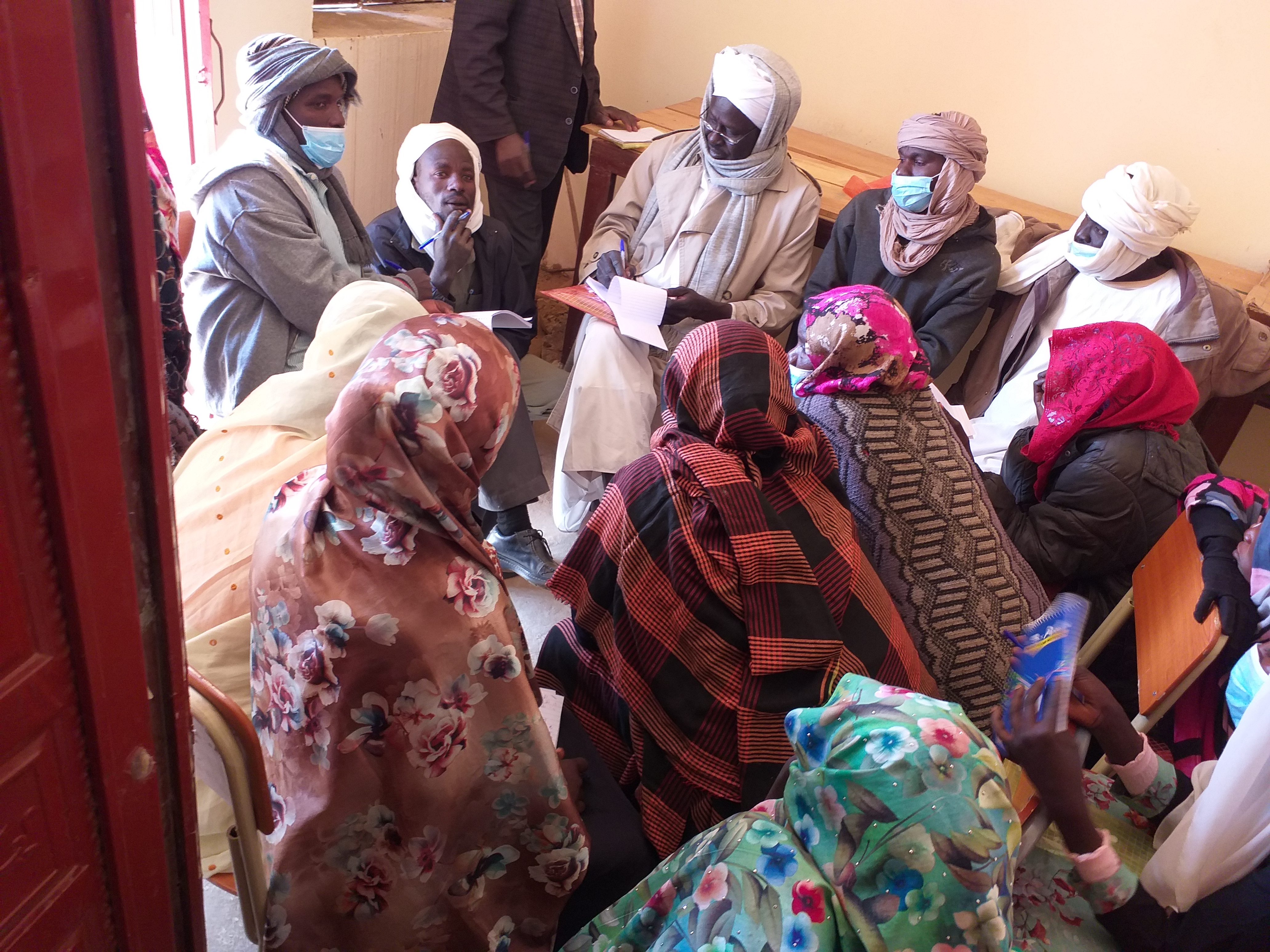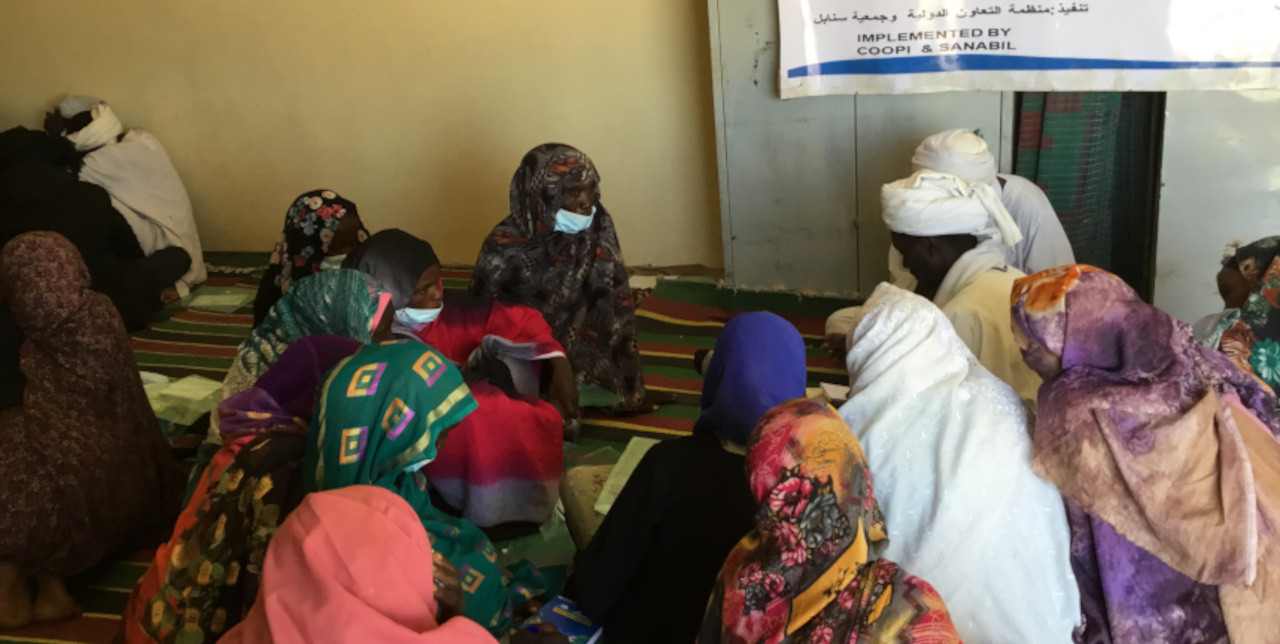09-09-2021 | di COOPI
North Darfur. 1.800 Households benefit from Farmer's Training, Seeds and Tools distribution
In June 2021, COOPI provided 1,800 households (approximately 10,800 beneficiaries) with a variety of vegetable seeds as part of our project "To Mitigate the effect of El Nino for host and IDP Population in North Darfur States", funded by the European Union. The seeds were distributed just before the planting season starts, at the beginning of the rainy season which normally lasts from July till around the beginning of August. In addition, 700 of the most vulnerable households received a range agricultural tools including hand rakes, hand hoes and donkey ploughs.
Upon consultation with the community, about 1,000 farmers received a two-day training to improve agricultural practices and learn about crop rotation, planting techniques, soil treatment, harvest & storage and the use of organic fertilizer and pesticides. The training was provided by COOPI and co-facilitated with the staff from the Department of Agriculture.

Furthermore, the seedbank management committees of the two seedbanks established by COOPI in Meski and Kerfu dam, received capital seed to sell, trade or loan to local farmers, as well as a refresher training on seedbank management. This will allow both seedbanks to contribute positively to improved access for the local farmers to good quality and affordable seeds, or for farmers to borrow the seeds and return them after harvesting, when cash is not available for them.
The farmers receiving the seeds, tools and training are living in the catchment areas of the three dams that COOPI rehabilitated and constructed in the last three years, securing a source of water for tens of thousands of people and hundreds of thousands of animals. It allows the beneficiaries to extend their planting season beyond the traditional rainfed crops using the bedding of the dams later in the season to grow additional crops and by using the water of the dam for irrigating their small farms.
The activities undertaken will all significantly contribute to an increase in food security and livelihoods, and will allow the beneficiaries to improve their agricultural productivity and good practices.




 Sudan
Sudan